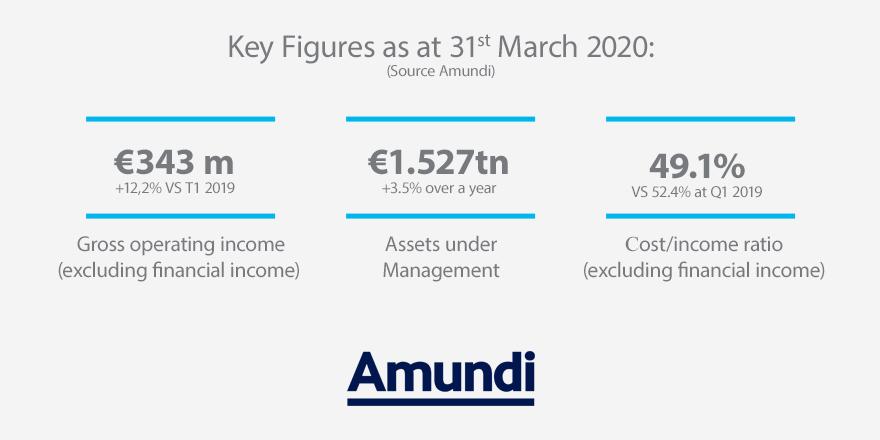In an unfavourable market environment, Amundi has maintained a high level of operating profitability, with positive jaws effect with net asset management revenue increasing significantly, and expenses decreasing. The result is a cost/income ratio (excluding financial income, which has been impacted by a mark-to-market effect) of less than 50%, one of the best in the industry. These strong results illustrate the resilience of Amundi’s diversified business model.
Adjusted data4
In Q1 2020, Amundi posted strong operating performance, with Gross Operating Income4 (excluding financial income) up to €343m (or +12.2% vs. Q1 2019).
Net asset management revenue increased substantially (€673m, up 5.1% vs. Q1 2019), thanks to:
- Higher net management fees (€631m, +1.7%);
- a doubling of performance fees (€42m).
Operating expenses were particularly well controlled (€331m, a decline of -1.4% vs. Q1 2019), thanks to the full impact of synergies related to the integration of Pioneer, which has more than offset the impact of new hiring in 2019 to support development.
Financial income (-€61m) was affected by the market downturn in March (mark-to-market valuation of the investment portfolio and seed money).
As a result, the cost/income ratio stood at 49.1% (52.4% in Q1 2019) excluding financial income. Including the financial income, the cost/income ratio remained at a very good level, at 54.1% (50.9% in Q1 2019).
In light of the (increasing) contribution from equity-accounted entities (primarily the Asian joint ventures), and a virtually identical tax charge of -€76m, adjusted net income totalled €206m, and €247m excluding financial income (after tax), up +5% compared to Q1 2019.
Accounting data5
Accounting income for Q1 2020 was €193m, down -17.8% from Q1 2019, largely due to negative financial income (‑€61m) caused by the market downturn.

